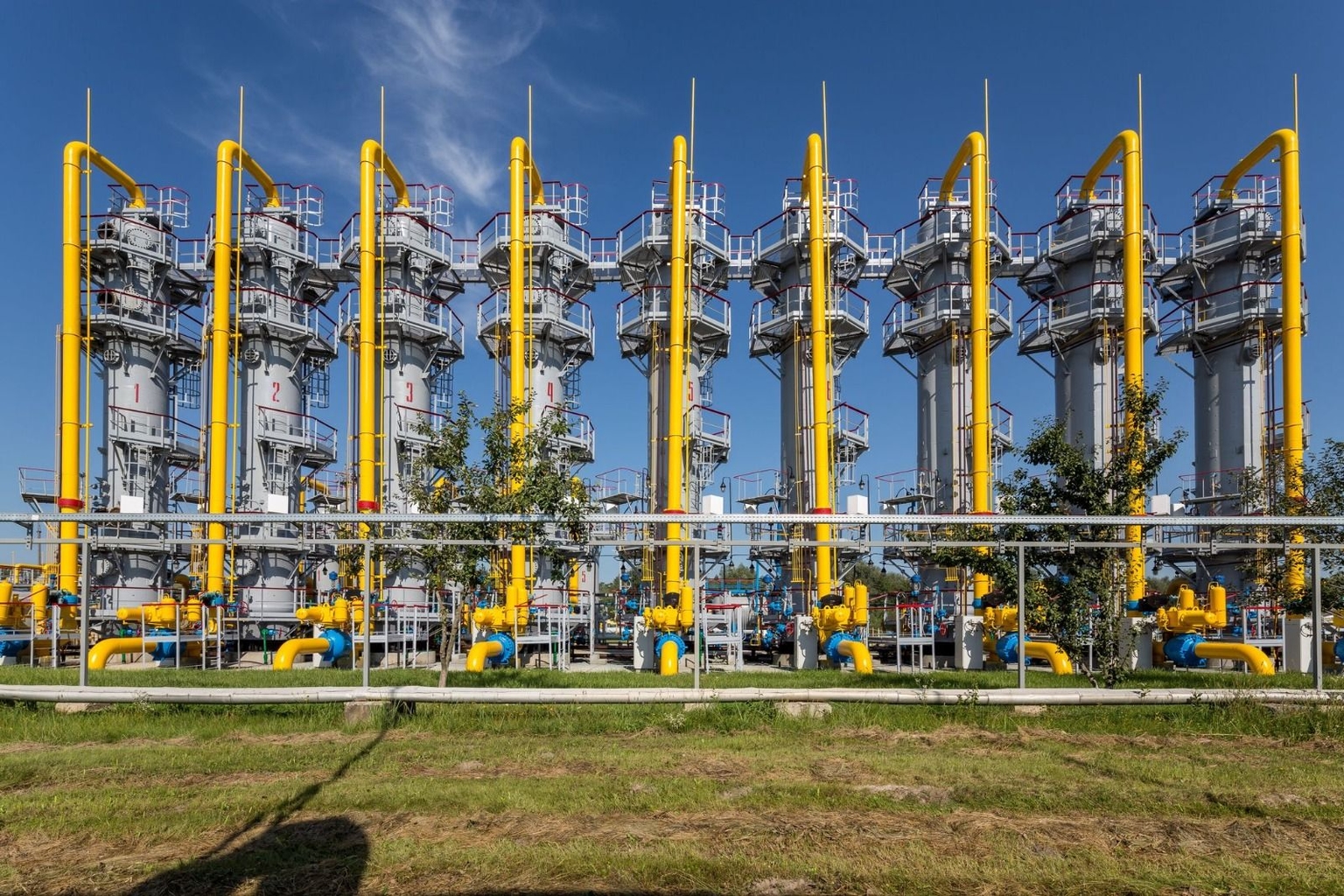Ukraine Business Roundup — No more border blockades, for now

The following is the April 30, 2024 edition of our Ukraine Business Roundup weekly newsletter. To get the biggest news in business and tech from Ukraine directly in your inbox, subscribe here.
Polish farmers finally ended their protests at the Hrebenne-Rava-Ruska border crossing on April 29, effectively lifting a blockade that had gone on for months, damaged Polish-Ukrainian relations, and put stress on Ukraine’s exports.
The news is a relief, ending a series of protests that started in February, when farmers, angered over an influx of what they said were cheaper Ukrainian products entering the Polish market, began blocking checkpoints along with their trucker counterparts. Polish truckers started their blockade last fall over what they said was an unfair market advantage after border restrictions were lifted at the start of the full-scale war.
After the protests started, thousands of trucks were left stuck in several-kilometer-long lines, in which several Ukrainian truckers reportedly died while waiting in the cold, and shocking videos surfaced of Polish farmers spilling Ukrainian grain — essential to food security around the world.
Estimates from last November when the trucker protests started ranged in the hundreds of millions of losses for the state budget, with losses to individual businesses in the tens of thousands. The Central Bank said on April 4 that in February, Ukraine’s imports suffered losses between $350-400 million.
If the economic toll is hard to pin down exactly, one thing for certain is that Ukrainian-Polish relations took a serious beating from the fulminations. The Ukrainian side accused Poland of “economic genocide,” angering Poles, who feel they have been more than generous in welcoming refugees, allowing the free movement of trade from Ukraine, and advocating for the war-torn country on the global stage.
Will it last? Let’s hope. For now, the protestors seemed to be assuaged by Polish Prime Minister Donald Tusk’s offering of subsidies as compensation for lower grain prices. Negotiations between the Polish and Ukrainian sides have also appeared to have done their job. But farmers have reportedly said they will renew the blockade, “if needed.”

Interested in interest
U.S. Treasury Secretary Janet Yellen told Reuters in an April 25 interview that Group of Seven (G7) allies wary of confiscating frozen Russian assets outright might support a U.S. proposal to use interest earnings from the funds to aid Ukraine instead.
The West froze around $300 billion in Russian Central Bank assets in response to the full-scale invasion but has so far been unable to agree on a plan for handing them over to Ukraine. One of the more well-received ideas has been to funnel the assets’ profits to Kyiv.
Even as the U.S. became the first Western country to adopt legislation to allow for the liquidation of $5 billion of immobilized Russian assets held there, the law doesn’t guarantee they’ll be confiscated, and getting the G7 to agree is still an uphill battle.
Yellen told Reuters that the earnings from frozen funds could be used to aid Kyiv without having to confiscate the assets directly. "This is an approach that could be broadly supported by countries concerned about the seizure of assets, and some of the interest could be brought forward through, for example, a loan.”
The secretary also praised the EU's plan to set aside sanctions-related profits earned at the central securities depository Euroclear and transfer the money to Ukraine, calling it "a welcome step." Most of Euroclear's Russian assets have now been converted into cash, Yellen said. These funds could produce around $5 billion a year in interest, according to G7 officials.
According to Yellen, the U.S.-backed plan to use interest from frozen Russian assets to back future loans to Ukraine will be one of the options debated by G7 nations ahead of a June leaders' summit. The U.S. proposal is now gaining popularity among G7 allies, two officials told Reuters.

Picking up where we left off
Ukraine and the United Arab Emirates finalized a bilateral trade agreement that lays the foundation for deepening investment and trade between the two countries after they fell following the start of the full-scale invasion, Ukraine's Economy Ministry announced on April 29.
Non-oil trade between Ukraine and the UAE hit $386 million in 2023, a sharp decrease from $800 million before February 2022, Thani Al-Zeyoudi, the UAE’s minister of state for foreign trade told Bloomberg.
The deal comes both as Ukraine’s bilateral trade has fallen with countries worldwide following Russia’s invasion and the UAE looks to increase its non-oil trade globally, according to Bloomberg.
The Economy Ministry estimates the agreement has the potential to boost Ukraine's GDP by 0.1% in the medium and long term. In a statement, Economy Ministry Yuliia Svyrydenko said the agreement provides Ukraine access to both the Emirates’ and global markets since the UAE is a “trade, economic, and financial hub.”
"The agreement will help improve trade conditions between Ukraine and the UAE, increase the volume of goods and services by lowering tariff barriers and stimulating investment cooperation between the two countries," Svyrydenko said.

In need of people
Seventy-four percent of surveyed companies in Ukraine are experiencing a personnel shortage, a significant jump from the 55% of employers surveyed last year who said they were struggling to fill jobs, according to a new survey by the European Business Association (EBA).
The study, conducted between August 2023 and April 2024, found that 17% of businesses surveyed are experiencing a partial shortage, and only 7% are not experiencing a shortage of any kind.
Russia’s full-scale invasion has wreaked havoc on Ukraine’s demographics. Unsurprisingly, participants listed talent shortages, mobilization, employee desires to work remotely, an outflow of qualified personnel abroad, burnout, and employee fatigue as reasons for the shortages.
Participants in the study said there are steps that could be taken to remedy ongoing constraints, including salary increases and more training programs. Seventy-two percent of businesses surveyed said they were planning to increase wages this year.
Research participants represent small, medium, and large-sized companies in the wholesale and retail markets, the pharmaceutical sector, food production, and services such as legal support, auditing, marketing, and recruiting.

Gas transit pending
Each passing day of this year brings Europe closer to the end of a five-year deal covering the transit of Russian gas through Ukraine. (One of those curious things about this war is how gas has continued to flow uninterrupted from the invader through the invaded, albeit at lower volumes following the start of the invasion).
European countries were already worried about what the agreement expiring at the end of this year would mean for the continent’s gas security next winter. Those concerns were only heightened after a Ukrainian official said European traders would not be able to negotiatiate for transit capacity at the border.
A lack of deals from a practical point of view means that Ukraine "will not offer any capacity at auction,” Andriy Prokofiev, an executive at the transmission system operator of Ukraine, said during the Flame conference in Amsterdam.
Ukraine already announced earlier this year that it would not be extending the deal with Russia after it expired. But European traders had hoped to be able to nonetheless book transport capacity on a daily, monthly, or yearly auction basis, similar to what is done at an LNG terminal in Belgium.
For European countries that continue to buy gas from Russia that comes through pipelines in Ukraine, like Slovakia, Hungary, Austria, and Italy who still rely on cheap Russian gas, Prokofiev’s announcement is especially unsettling.

In case you missed it
For the anniversary of the 1986 Chornobyl nuclear disaster on April 26, Kyiv Independent reporter Andrea Januta took a look at the current state of Ukraine’s nuclear energy industry, which continues to produce around half of Ukraine’s power output. Thirty-eight years after the tragedy, nuclear safety is again at risk amid Russia’s ongoing occupation of the Zaporizhzhia nuclear power plant — Europe’s largest.
Read the story here.
If you’re looking for more nuclear content, we recently published an op-ed by Olena Lapenko, general manager for security and resilience at the Kyiv-based DiXi Group, on Russian-state nuclear company Rosatom’s ever-growing influence over the global nuclear industry.
Read it here.
What else is happening
Prosecutor's Office: Over 2,500 gambling websites blocked in Ukraine
After President Volodymyr Zelensky signed a decree restricting the gambling industry in Ukraine, the crackdown on the industry has begun. More than 2,500 gambling websites operating without a license have been blocked in Ukraine, and law enforcement officers are investigating over 450 criminal cases related to illegal gambling.
Bloomberg: Ukraine’s wheat crop for 2024-2025 season expected to be lowest in 12 years
The country’s wheat crop in the 2024-2025 season that starts in July is expected to amount to 19.9 million tons, the lowest in the last 12 years, Bloomberg reported, citing a forecast. Lower crops will lead to lower exports, which means less hard currency for the already struggling economy. Read more about Ukraine’s grain export woes.
Naftogaz increases gas production by around 12% in first quarter of 2024
Ukraine’s oil and gas giant Naftogaz said it had increased gas production by almost 12% compared to the same period last year after launching new wells and working “more effectively” with existing infrastructure. The company said that while production levels are typically highest in the east, its central and western facilities also exceeded production forecasts.
Ukraine’s central bank lowers key rate to 13.5%
The National Bank of Ukraine cut its key interest rate for the second time this year to 13.5% from 14.5% on April 25 after the U.S. passed a key aid bill for Ukraine, but warned that growth would be restrained this year primarily due to damage to energy infrastructure. The bank also said inflation would be lower than originally expected, but cut its gross domestic product forecast to 3% from an earlier 3.6%.
Government allocates over $90 million to reconstruction
Ukraine’s Cabinet of Ministers allocated Hr 3.7 billion ($93 million) to the State Agency for Reconstruction and Development of Infrastructure, Economic Pravda reported on April 30, citing a government resolution it gained access to. Around half of the funds, which come from a European Investment Bank loan granted to Ukraine in 2022, will go towards new construction, reconstruction, and major and ongoing road repairs.









